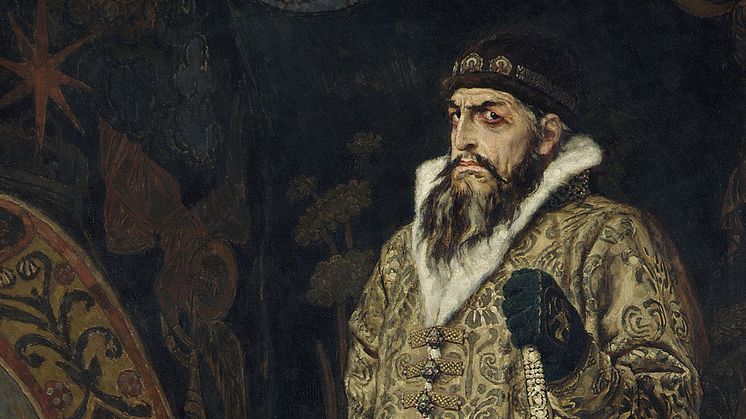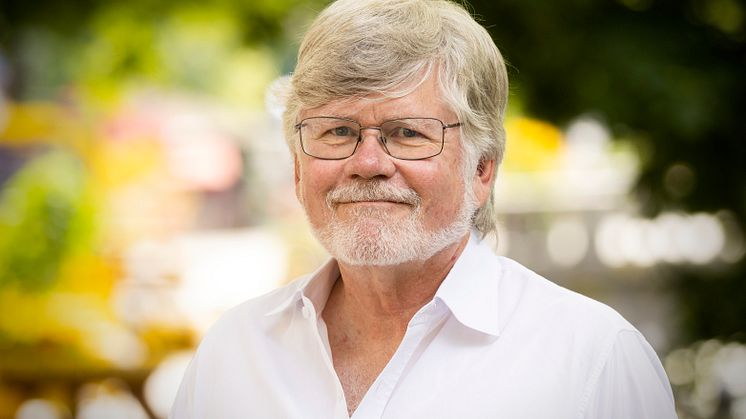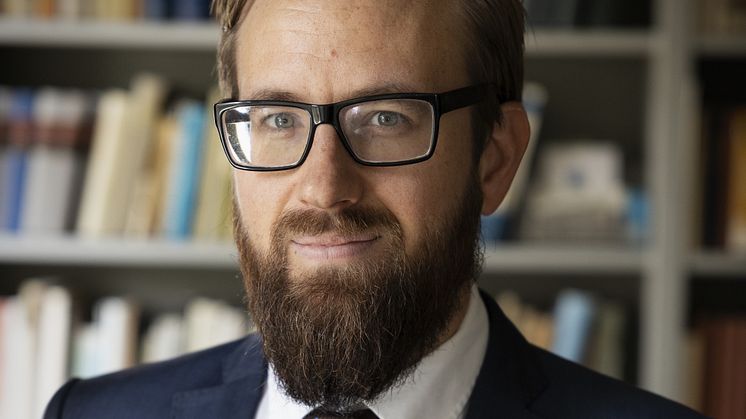
Press release -
Should we stop saying ‘Russia’?
Should the world stop using the name ‘Russia’ and go back to the old name ‘Muscovy’? The question has been raised by critics of Russia in recent years and in his new book “Russia reverts to Muscovy”, Stefan Hedlund, Professor Emeritus of East European Studies, highlights several arguments in favour of a change of name.
In spring 2023, 25,000 Ukrainians demanded that Ukraine should change its official practice and stop calling Russia ‘Russia’. Instead, it should go back to the older name ‘Muscovy’, which was used for the country from the 13th to 16th centuries. President Volodymyr Zelenskyy endorsed this demand and instructed the government to study the issue from various perspectives.
Professor Stefan Hedlund has devoted more than 40 years to research on the politics, history and economy of Russia. When he started his research, Leonid Brezhnev was leader of the Communist Party of the Soviet Union. He examines the Ukrainian arguments in a new book.
Muscovy and state of Kiev
“Considering the evil way in which Russia has conducted this war, it’s understandable that many Ukrainians associate the current Russian regime with the autocrats who governed ancient Muscovy – to which Ukraine did not belong. The unchecked terror of Ivan the Terrible was followed much later by the mass murders of Joseph Stalin and now the terror unleashed by Vladimir Putin on the civilian population of Ukraine. But there is also a significantly deeper dimension to the name issue, which involves more than just shedding light on legendary Russian brutality,” Hedlund says.
In the newly published book “Russia reverts to Muscovy”, he enters into several historical explanations for why the war has become a matter of life and death for both Russia and Ukraine. The main message of the book is that in the Russian world view, Russia is perceived to be intimately associated with the medieval state of Kiev, the cradle of Russia. This line of thought leads to the conclusion that Russia cannot exist without Ukraine.
“The fact that Russia is so obsessed with the idea that Ukraine must be obliterated shows that the issue is so important that they would rather allow Russia to perish than Ukraine to survive,” Hedlund argues.
Three fundamental reasons
In his book, he advances three fundamental reasons for following the Ukrainian call for a change of name.
“The first is that present-day Russia has already lost so much of the old empire that in its western parts, with the exception of Belarus, it has been reduced to precisely ancient Muscovy, as it was at the end of the 16th century. As the name ‘Russia’ only began to be used in the time of Peter the Great, in other words, during the later emergence of the Russian Empire, there is good reason for asserting that it has now had its day.”
The second reason, Hedlund writes, is that the social order that distinguishes present-day Russia is so similar to ancient Muscovy in several fundamental respects. Some examples of this are autocracy, the suppression of private property, xenophobic relations with the world around it, and an alliance with the Orthodox Church, which preaches that subjects have a duty to obey their ruler. According to Hedlund, it was predictable that Putin’s Russia would regress to the old patterns of Muscovy and that Putin himself would turn into a modern Ivan the Terrible.
The third and most important argument, he writes, is that the name issue is vitally important to Russia. If the international community continues to say ‘Russia’, that signals an implicit acceptance of the Russian demand for a sphere of influence that includes Ukraine. It is only by making it clear that the historical Ukraine was not part of Muscovy that we can understand why it is so important for modern Russian imperialists to talk about ‘Russia’.
“If modern Muscovites want to call themselves ‘Russians’ then of course they have a right to do so, just as others have a right to call themselves Ukrainians or Belarusians. What is unacceptable is that the Muscovites assert that everyone whose roots lie in the old state of Kiev are ‘Russians’ and that all of them, no matter how they define themselves, must accept being governed by Moscow,” Hedlund says.
‘Russia’ is at stake
The red thread running through the book is that the very concept of ‘Russia’ is at stake.
“Going back to talking about Muscovy could not only improve our understanding of how the country is governed. It also enables us to side with Ukraine in its struggle for the right to continue to exist.”
Hedlund, Stefan (2025); “Russia reverts to Muscovy: What if we Simply Drop ‘Russia’ from the Discourse?”, Routledge, ISBN 9781032627670
For further information:
Stefan Hedlund, Professor Emeritus of Eastern European Studies, Institute for Russian and Eurasian Studies, Uppsala University, Sweden, phone: +46-18-471 16 99, mobile: +46-70-167 95 03, email: stefan.hedlund@ires.uu.se
Topics
Categories
Founded in 1477, Uppsala University is the oldest university in Sweden. With more than 50,000 students and 7,500 employees in Uppsala and Visby, we are a broad university with research in social sciences, humanities, technology, natural sciences, medicine and pharmacology. Our mission is to conduct education and research of the highest quality and relevance to society on a long-term basis. Uppsala University is regularly ranked among the world’s top universities. www.uu.se


